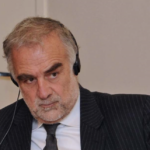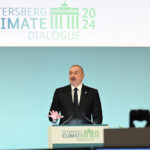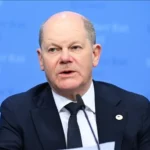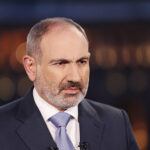“Moscow is extremely displeased with the recent public statements by the Armenian leadership, including the statements of the Armenian Prime Minister in an interview with the Italian newspaper La Repubblica and the Armenian Foreign Ministry’s comments of August 31, and regards them as unacceptable in tone and content, with the aim of shifting the responsibility for its own miscalculations and mistakes onto Russia,” the agency’s source said.
Attempts are being made to artificially push Russia out of the South Caucasus, using Yerevan as a means to this end, he pointed out. The Russian Federation considers relations with Armenia in security and economy not as a “dependence” but as an equal effective partnership. As Armenia’s closest friend and neighbor, Russia has no intention to leave the South Caucasus region, the diplomatic source said.
He added that Russia views relations with Armenia in the fields of security and economy “not as a dependence of one country on another, but as an equal, mutually beneficial partnership that has proven its effectiveness.”
According to the source, the argument that “the Karabakh conflict has never been a territorial dispute between Armenia and Azerbaijan” is false.
At the same time, he noted that the armed confrontation in the fall of 2020 was largely a product of the rash and provocative steps of the Armenian leadership, including statements that “Karabakh is Armenia” and participation in the inauguration of the so-called “president” of Karabakh in Shusha.
“This largely invalidated the agreements reached by the parties through the OSCE Minsk Group. Had it not been for the intervention of Russia and President Vladimir Putin personally, the outcome of the hostilities would have been even more deplorable,” the source said. “Three weeks after the beginning of the war, the Russian president urged the Armenian Prime Minister to agree to a ceasefire that would have prevented further casualties and ensured peace and tranquility in Karabakh.”
“The main path to the settlement of Armenian-Azerbaijani differences is the implementation of trilateral agreements at the highest level, which has been unacceptably delayed through no fault of Russia,” the TASS source stressed.
Meanwhile, the source said, Yerevan “also does not fully use the potential of the CSTO, which, in particular, was manifested in the refusal to agree to the deployment of the organization’s mission and opting for the ineffective EU mission instead.” In this context, he added, speculations about some kind of crisis in the CSTO look like politicking.
The agency’s source referred to the EU-brokered summits in Prague on October 6, 2022 and Brussels on May 14, 2023 as the point of no return, with the Armenian leadership making a U-turn from declaring “Karabakh is Armenia” to recognizing Karabakh as part of Azerbaijan.
“This dramatically changed the terms of the November 9, 2020 agreement and made the work of the Russian peacekeeping contingent (RPC) in Karabakh extremely difficult,” he stressed. “Nevertheless, the Russian peacekeepers are making every effort to prevent the escalation of the situation on the ground.”
“Such groundless attacks on RPC cause nothing but harm, including to Armenia itself,” the source said.










